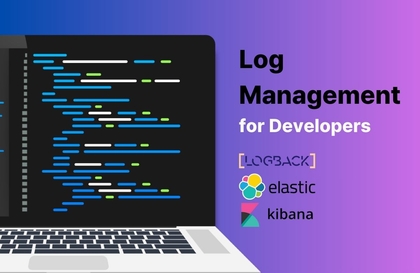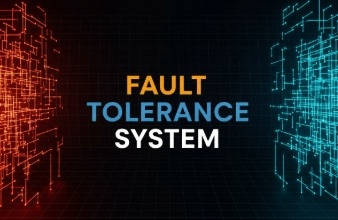
Log Management Required for Developers
foo
$23.10
Basic / Elasticsearch, logback, Logstash, Kibana, Spring Boot
4.9
(83)
From log recording to collection and utilization, it covers the whole cycle.
Basic
Elasticsearch, logback, Logstash
This is a practical course covering how to build systems robust against failures. From design fundamentals for service stability, various patterns to prevent failure propagation, asynchronous processing using message queues, to strategies for maintaining distributed data consistency, you will learn the core technologies and concepts required for a stable backend system.
298 learners
Level Basic
Course period Unlimited


Recommend Course to grow and earn commission!

Marketing Partners
Recommend Course to grow and earn commission!
Reviews from Early Learners
5.0
Jang Jaehoon
Thank you for the great lecture!
5.0
아자
It was difficult because I haven't actually experienced it, but I gained many keywords, so I'll study and then listen to the lecture again 😊😊
5.0
100and
Wow!! I can't even count how many times I rewatched and absorbed this lecture. Thanks to that, it took me a long time to complete the course, but I was able to learn so much in return. It was such valuable time where I could develop both specific technical skills and an overall architectural perspective. I'm so excited for Foo's next lecture!! Thank you so much for creating such a great course!! :)
Robust fault-tolerant system design
Kafka for Event-Driven Architecture Building Basics
Basics of Handling Transactions in a Distributed Environment
Who is this course right for?
Those who want to design robust systems and prevent failure spread using Retry, Timeout, Circuit Breaker, etc.
For new Kafka users, or those desiring to build stable asynchronous communication architectures beyond messaging queue basics.
A backend developer who wants to understand transactions and idempotency in a distributed environment, and learn methods to ensure data consistency.
Need to know before starting?
Spring Boot Backend Development Experience
6,061
Learners
303
Reviews
117
Answers
4.9
Rating
9
Courses
Hello.
I'm Foo, and through my mentoring, I put a lot of thought into how to clearly explain concepts that junior developers often find challenging.
I look forward to working with you.
Experience
2019. 08 ~ Present : Kakao Java Backend Developer
2021. 08 ~ Present: programmers Backend Dev Course Mentor
2021. 12 ~ Present: F-Lab Java Backend Mentor
Book
This is Backend Development for Employment with Java (Link)
Other experiences and lectures on other platforms can be found at the GitHub link below.
GitHub - https://github.com/lleellee0
All
32 lectures ∙ (8hr 45min)
Course Materials:
11. Retry and AOP
34:20
14. Circuit Breaker
31:20
All
15 reviews
Check out other courses by the instructor!
Explore other courses in the same field!
$42.90